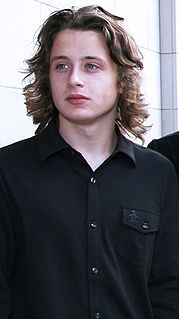A Quote by Maria Montessori
The first aim of the prepared environment is, as far as it is possible, to render the growing child independent of the adult.
Related Quotes
Almost everywhere we find . . . the use of various coercive measures, to rid ourselves as quickly as possible of the child withinus--i.e., the weak, helpless, dependent creature--in order to become an independent competent adult deserving of respect. When we reencounter this creature in our children, we persecute it with the same measures once used in ourselves.
In certain circumstances where he experiments in new types of conduct by cooperating with his equals, the child is already an adult. There is an adult in every child and a child in every adult. ... There exist in the child certain attitudes and beliefs which intellectual development will more and more tend to eliminate: there are others which will acquire more and more importance. The later are not derived from the former but are partly antagonistic to them.
I believe that maturity is not an outgrowing, but a growing up: that an adult is not a dead child, but a child who survived. I believe that all the best faculties of a mature human being exist in the child. . . that one of the most deeply human, and humane, of these faculties is the power of imagination.

































